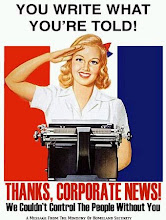James Grimmelmann has published his supplemental comments on behalf of the Institute for Information Law and Policy at New York Law School. His thoughts about the whole GBS1 - GBS2 process are very interesting:
This filing reflects the continuing evolution of my thinking on the settlement. I have gone from “Approve the settlement.” to explaining “How to Fix the Google Book Search Settlement” to being deeply concerned about the means it uses.” In September, our filing recommended further consultation and improvements to the class action process, in the hopes that sufficient oversight could keep it accountable and operating in the public interest. The letter filed today concludes that the way the settlement uses a class action is not salvageable.
I had been looking for a limiting principle: something that could justify a modified version of the settlement while also setting a clear boundary beyond which future cases could not go. But I have become convinced that no such limiting principle is likely to be apparent any time soon. Without one, there is no way to make the settlement consistent with the rule of law, and it should not be approved.
Published in the New Republic, HLS prof Larry Lessig's recent essay, For the Love of Culture: Google, copyright, and our future, argues the case that a new rule of copyright law is needed sooner rather than later. "We have all wasted too much time waging the copyright wars to know enough what a sensible peace would look like," writes Lessig. Between the "copyright abolitionists" and the licensing advocates, the "content industry--that seeks to license every single use of culture, in whatever context" as reflected, for example, in GBS2 which "constructs a world in which control can be exercised at the level of a page, and maybe even a quote," a new balance must be established to protect and limit markets by legislative reform.
We need a renewed effort to strike this balance through interests that recognize the good in both sides. It would be a mistake to destroy new markets by eliminating copyright protection where it would do good. It would also be a mistake to assume that all access to culture should be governed by markets, regardless of the effect it has on access to our past. In the most abstract sense, we need to decide what kinds of access should be free. And we need to craft the law to assure that freedom.
Lessig is less than optimistic:
The idea of balanced public policy in this area will strike many as oxymoronic. It is thus no wonder, perhaps, that the likes of Google sought progress not through better legislation, but through a clever kludge, enabled by genius technologists. But this is too important a matter to be left to private enterprises and private deals. Private deals and outdated law are what got us into this mess. Whether or not a sensible public policy is possible, it is urgently needed.
For starters, the Open Book Alliance might want to ratchet down the level of its polemics below "11." In its recently filed amicus brief opposing GBS2, OBA "highlights" five reasons why the GBS2 is a “paltry proposal:”
Control of the Search Market is Google’s True Goal
Secret Side Deals Among the Parties Actually Control The Settlement Terms
Google’s Anticompetitive Bundling Undermines Competition in Digital Book Distribution
The Amendments Fail to Resolve Antitrust Objections
The Settlement Fails Even a Rule of Reason Evaluation
[JH]
http://lawprofessors.typepad.com/law_librarian_blog/2010/02/beyond-gbs2-to-a-new-rule-of-copyright-law.html?utm_source=feedburner






